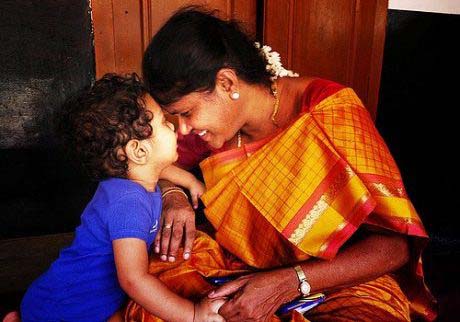Archetypal Mother’s Day: Mothering & Attachment Issues In Adults

Happy Archetypal Mother’s Day! Here I look at our genetically engrained need for good mothering, and how childhood experience profoundly impacts attachment issues in adults.

Mothering has many key similarities across different cultures.
By “attachment” we mean our ability to connect meaningfully with those close to us. Our need to attach is one of our most profound human needs. Our capacity for healthy attachment is going to impact our whole capacity for handling major life transitions.
Whether we can do this depends, first and foremost on our experience of mother at an early age.
At the Beginning of Life, Mother is Everything
Initially, as infants, our mother is everything to us. The way that she relates to us, and how she treats us will literally impact our whole experience of our lives. Whether we see life is dependable and supportive will depend in absolutely crucial ways on the mother-child relationship.
In addition, whether we are able to form a loving attachment bond with anyone else is profoundly impacted by whether our mother is able to teach us how to have a secure attachment bond with her. If we experience the mother-child relationship as secure and supportive, feel seen and valued for who we are, and experience our mother as able to help us “emotionally regulate” (calm ourselves in intense distress) — it will make a huge difference as to whether we can give these things to others in relationship later in life, and receive them from someone who wants to give them to us.

Throughout Life, We Have a Deep Need for Successful Attachment
Our relationship with our mother is going to change with time. We also need to develop attachment bonds to other people in our lives: family, lovers, friends, children. To get the best from life we have to be able to be open, trusting, giving.
Yet, attachment issues are widespread in adults. For many, they impair ability to be close, to trust, and to give. Situations with partners, children, or even close friends may evoke feelings, and possibly memories that go back to experiences when we were very young, when attachment was disrupted.
Major Life Transitions of Those Close to Us Profoundly Affect Us
Those deeply affected by disrupted attachment at crucial points in their life journey can find that major life transitions consciously or unconsciously evoke feelings and memories connected with the original experience.
Example 1. A woman who had powerful experiences of parental loss and abandonment, which came to a head in her very early 20s, underwent a very strong emotional reaction at a time when her daughter encountered medical and vocational challenges at a similar age, and, simultaneously, the oldest and best of her parents’ friends died.
Example 2. A man who underwent a crisis in his relationship with his mother in his late teens underwent a period of intense feeling as his own children went through the same life stage, and, with his help, got launched on very positive post-secondary paths. He found it genuinely healing to realize that, through his and his spouse’s efforts, their children were having very life-affirming experiences of this life stage. In addition, he was able in this time to process a great deal of feeling associated with that difficult period in his life.
Healing of Attachment Issues in Adults
When people confront severely disrupted attachment or early life trauma, they can experience a sense of genuine, chaos, or meaninglessness, or sometimes a mass of indescribable, incoherent emotion. Such experience may well lead to attachment issues in adults. To address them, it can be essential to find someone supportive who can help to contain the emotion involved, to regulate it, and to turn traumatic events into meaningful, coherent story.
Depth case studies with a high quality therapist can provide ways for individuals to confront and process their early experiences of disordered attachment or trauma. As Jungian neuropsychoanalyst Margaret Wilkinson, states, “Exchanges that involve putting feelings into words… are an intrinsic part of the process of coming into mind. [Therapy] that encompasses relational as well as interpretive [work] can bring about … change in the nature of attachment [and] permit the self to emerge more fully through the process of individuation.”
Brian Collinson, Registered Psychotherapist & Jungian Psychoanalyst
[cta]
